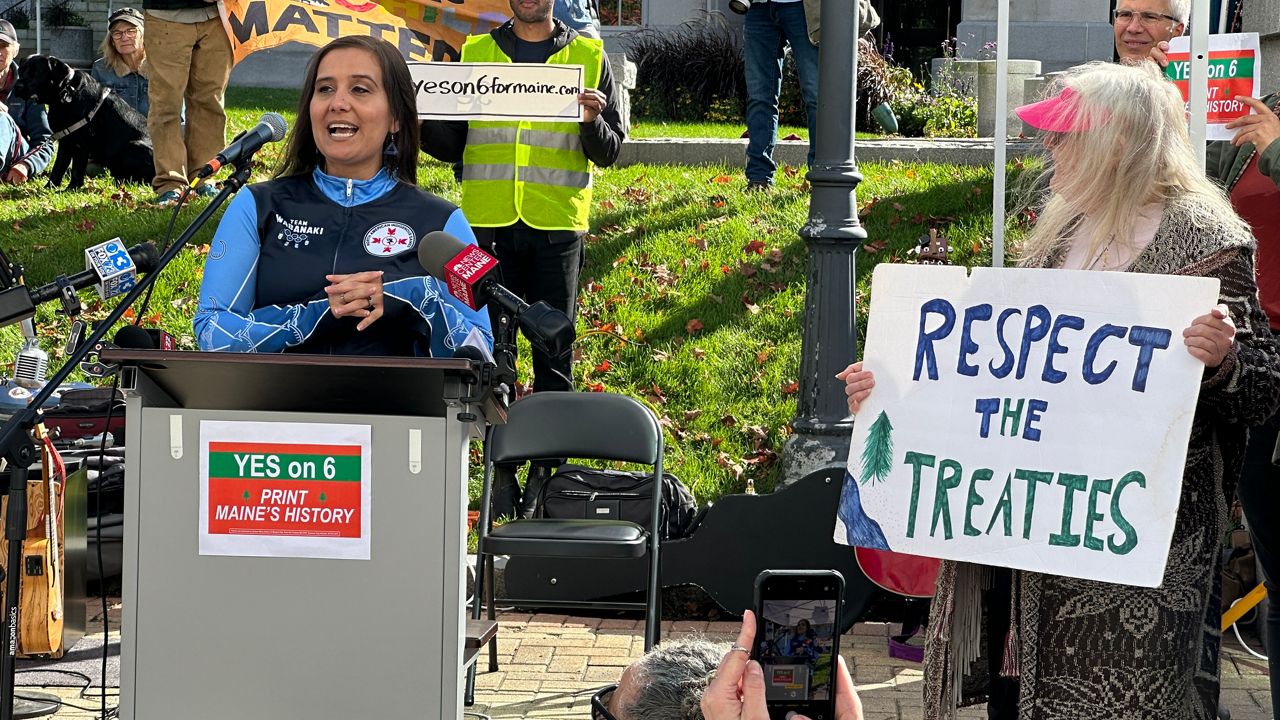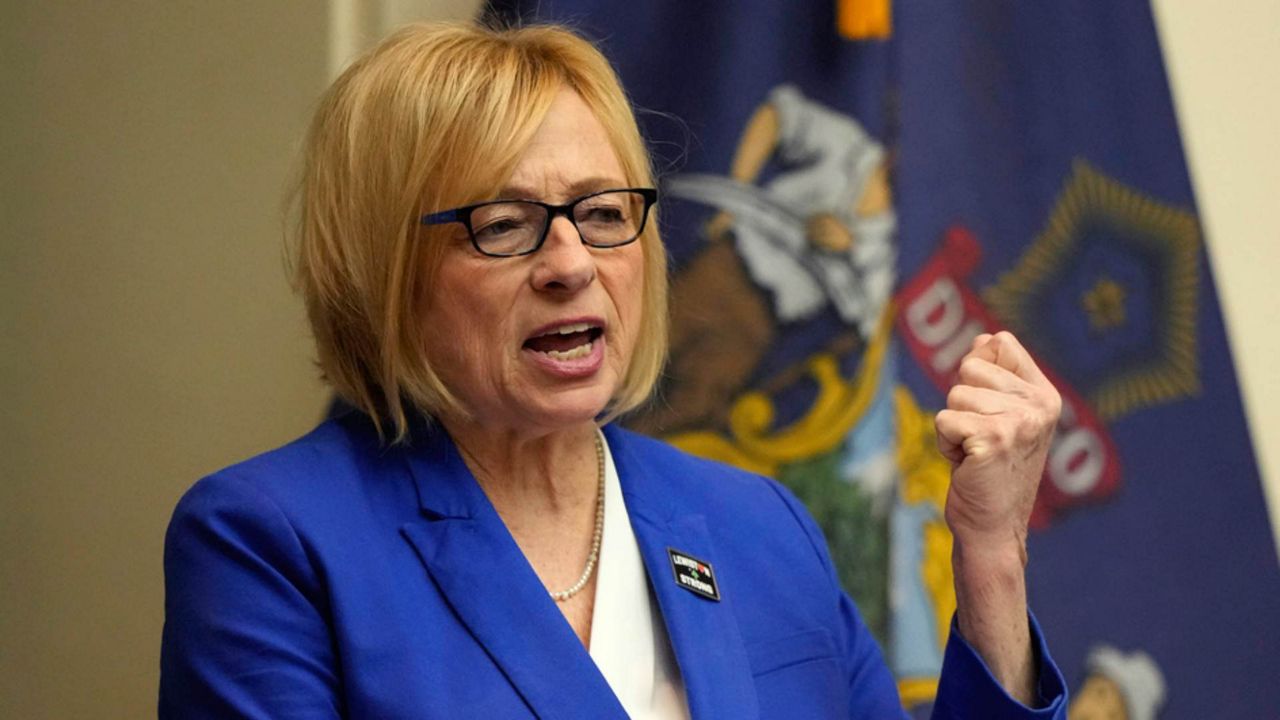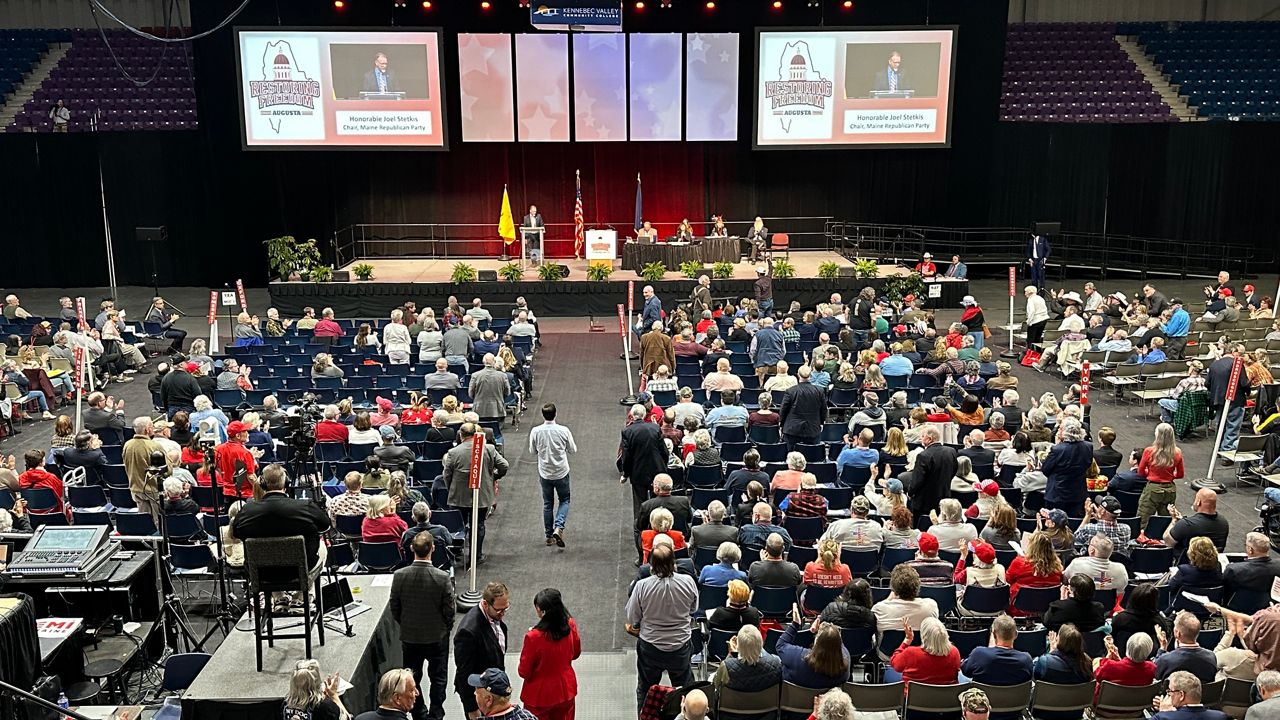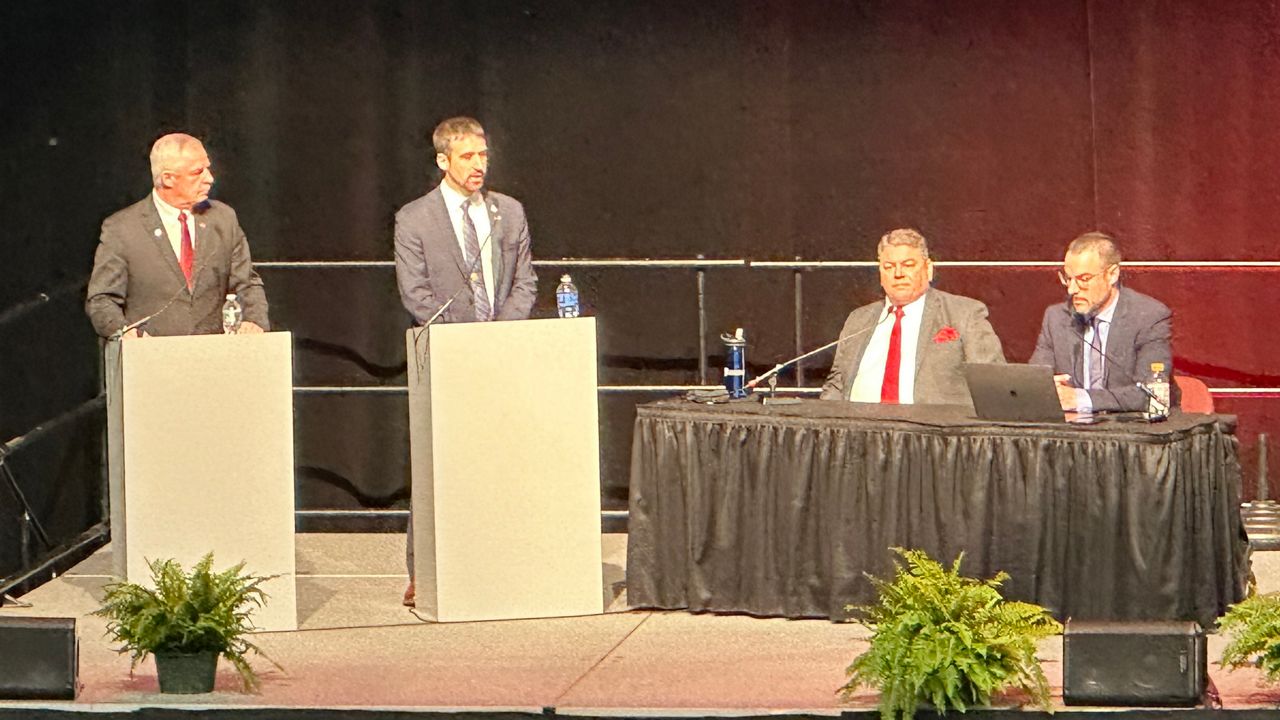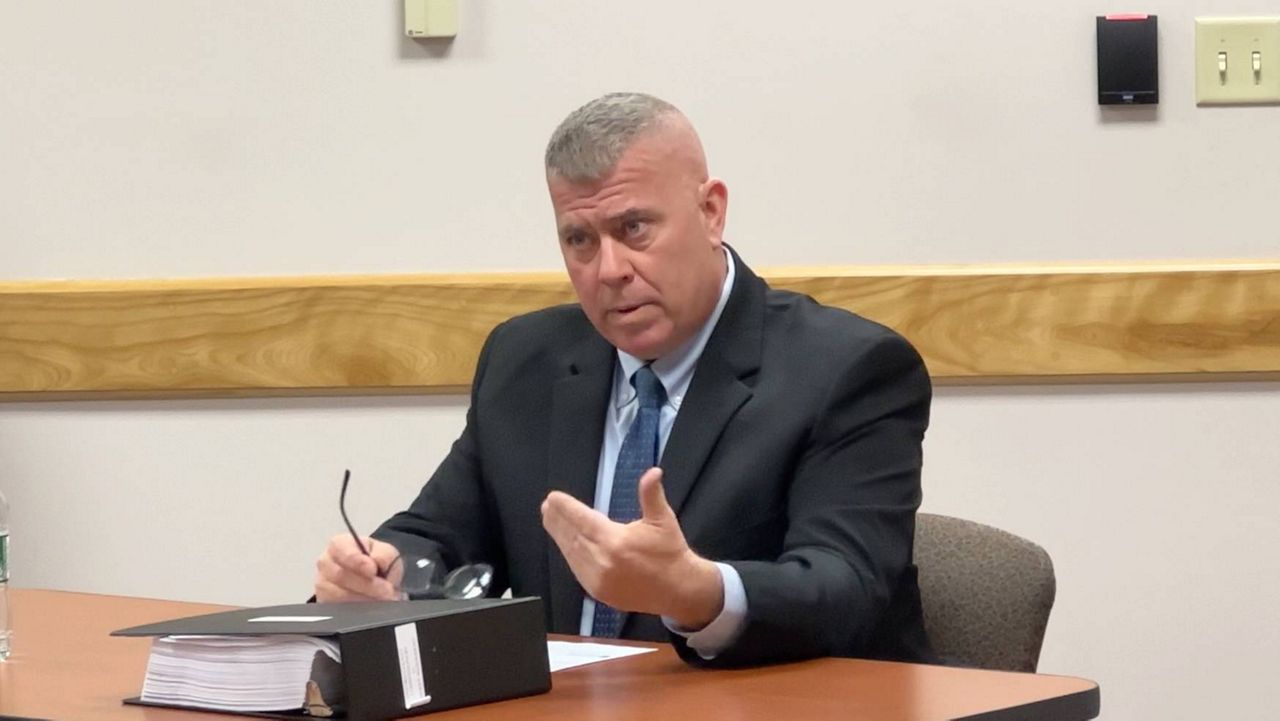Maine tribal leaders and their allies rallied at the State House in Augusta Monday to urge support for ballot Question 6. The referendum would require language removed from printed copies of the state constitution that refers to Maine’s tribes to be restored.
More than 250 people chanted and marched during the Indigenous Peoples’ Day rally.
“They have been removed from the printed history and we want to put them back,” said Penobscot Nation Ambassador Maulian Bryant. “It really is that simple. There’s no hidden agenda. There’s no secrets here. It’s just about transparency, truth and restoration of our history.”
Section 5 of the Maine Constitution is one of the parts that is no longer printed. It references Maine’s commitment to honor “all duties and obligations … towards the Indians” as part of Maine’s separation from Massachusetts in 1820.
The language, along with other parts of the constitution, was removed from printed copies in 1876, when the document was recodified.
At Monday’s rally, Senate President Troy Jackson (D-Allagash), the Unitarian Universalist Society of Bangor, local union leaders and others gathered in solidarity behind the effort to pass Question 6.
“To have a constitution in the State of Maine that has a whole section about the tribes being struck out for absolutely no good reason is unconscionable,” Jackson said.
He ended his brief remarks by looking forward to the next big fight for the tribes — a push for full sovereignty.
“Do what’s right, put the tribal language back in and then let’s go on to fight for solidarity, fight for sovereignty for the tribes,” he said.
Also Monday, Planned Parenthood Maine Action Fund announced its support for Question 6 calling it “a first step in acknowledging a shameful history and confirming our commitment to justice for Indigenous people in Maine.”
And although the ballot question won strong bipartisan support in the Legislature, Gov. Janet Mills opposed it while it was under consideration.
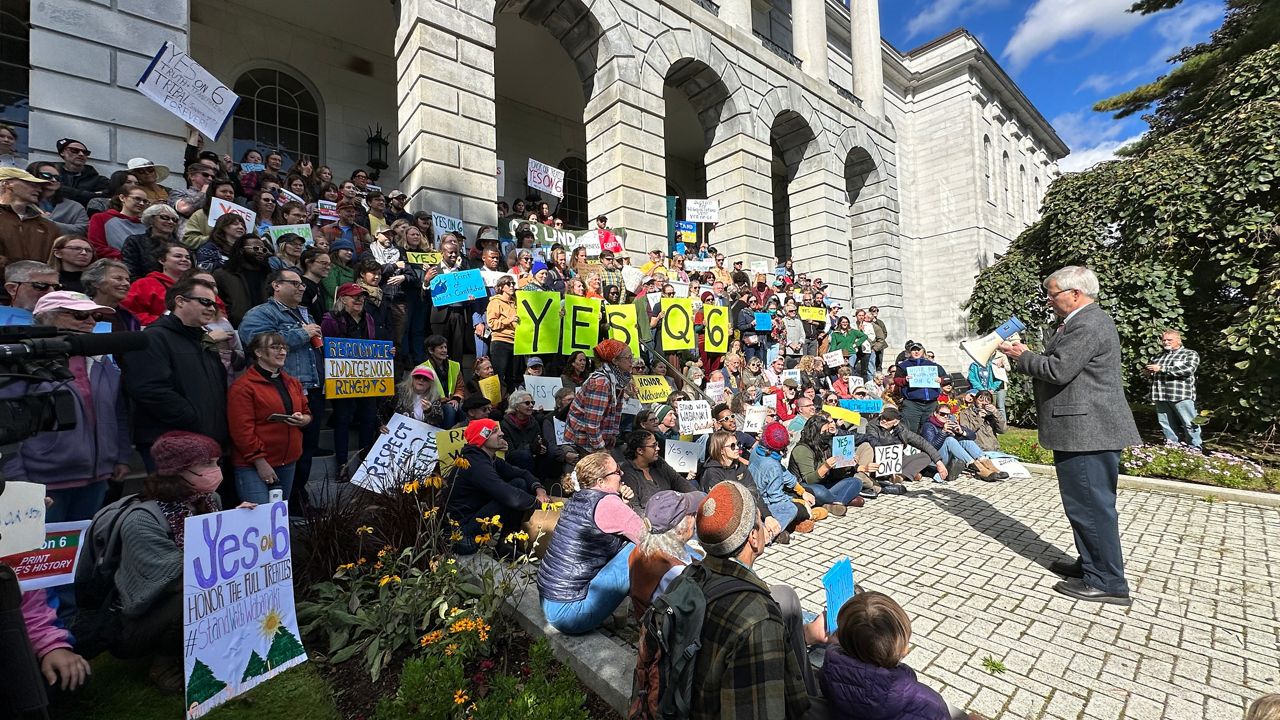
Mills, who signed the Maine law in 2019 to replace Columbus Day with Indigenous Peoples’ Day, put out a statement Monday to honor the tribes and note the other progress that’s been made.
“While there is still much work ahead, I am proud of the historic progress that my Administration and Maine’s Tribal Nations have achieved together — more than any Maine Governor in the last four decades — and the good that it will do for the Wabanaki people,” Mills said. “While we may have disagreements on some areas of policy, I remain fully committed to collaborating with the Wabanaki Nations to find common ground to move forward, just as we have in the past."
Those disagreements include her opposition to Question 6, stance against full tribal sovereignty and her veto of legislation to allow the tribes to automatically take advantage of federal laws.
On Question 6, Mills’ Chief Legal Counsel Gerald Reid told lawmakers earlier this year that the Maine Indian Land Claims Settlement of 1980 is what defines the relationship between the state and tribes, not treaties that date back to the 1800s.
“It is foreseeable that some will wrongly believe that once again including the Articles of Separation in printed copies of the Constitution revitalizes 18th and 19th century treaty obligations,” he said. “That is incorrect.”
Among the achievements, the administration lists tax relief for tribal members, the opportunity to benefit from online sports wagering, strengthening water quality standards to protect sustenance fishing, and prohibiting Native American mascots in public schools.
At the federal level, U.S. Rep. Chellie Pingree (D-1st District) is co-sponsoring a bill to make Indigenous Peoples’ Day a federal holiday.
Maine is one of 12 states and the District of Columbia to recognize the holiday on the state level.
“For Indigenous people, Columbus Day has long been a painful reminder of the suffering that was inflicted on their ancestors, and an illustration of the ongoing disparity in opportunity and treatment offered to them by the federal government,” she said in a statement.
She said it’s time for a “national reckoning.”
“By declaring Indigenous Peoples’ Day a federal holiday, Americans have the opportunity to acknowledge our shared history and recognize native tribes as this land’s first true inhabitants,” she said.




